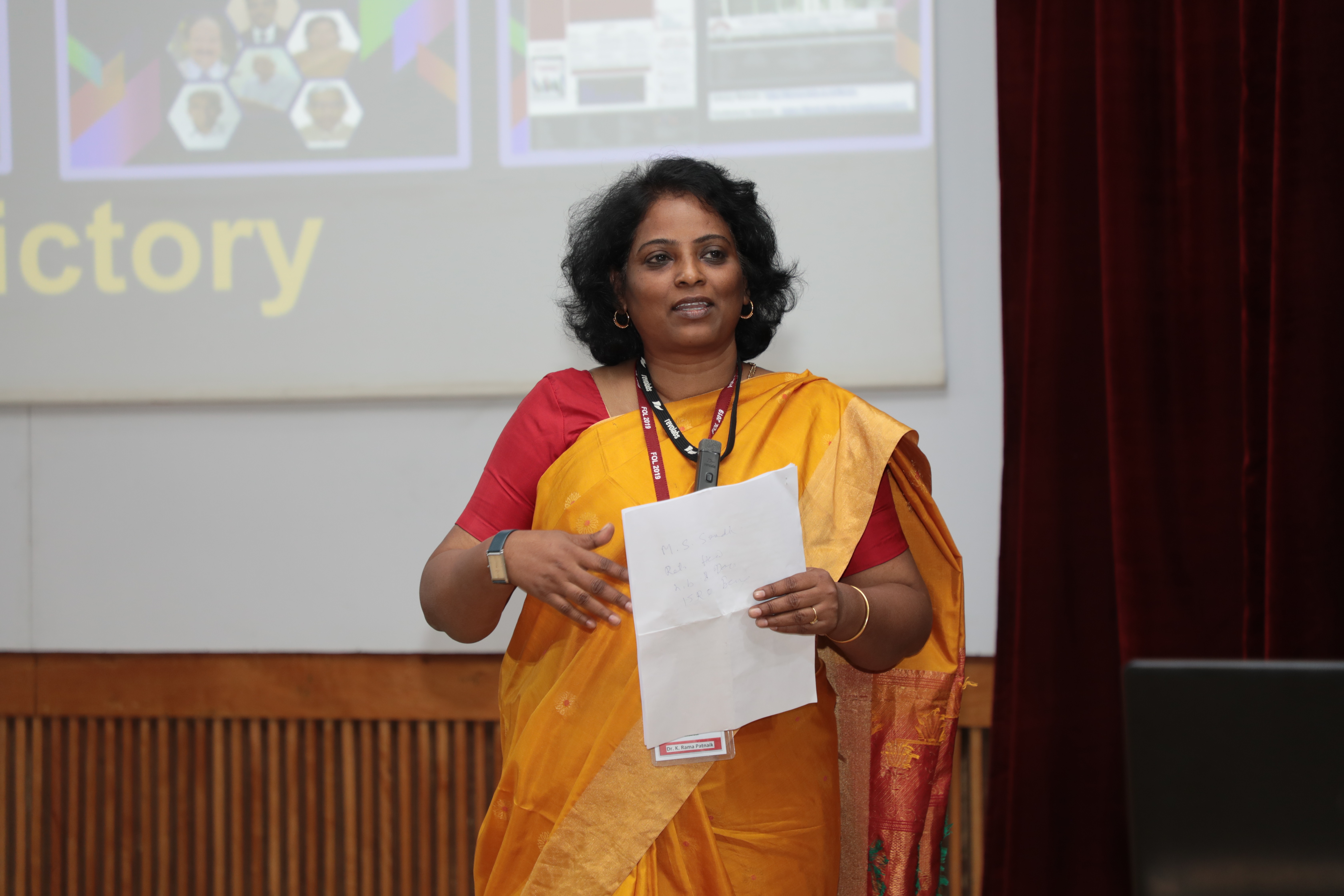
Speakerlist1
Invited Lectures
Dr. Kishor Chandra Satpathy Chief Librarian Indian Statistical Institute Kolkata |
Panel Discussion
 (L-R) Rajendrakumar P Y, Former Director General, National Library of India, P Jayarajan, who retired in 2003 as Head of the, British Council Libraries in India, Dr. Arun Kumar Chakraborty, Librarian, Bose Institute, Kolkata, Dr. Akhtar Parvez, University Librarian, Maulana Azad National Urdu University, Dr. S. Kamatchi, Librarian and Information Officer, Anna Centenary Library, and Dr. Basheerhamad Shadrach, Asia Coordinator, World Wide Web Foundation, during the panel discussion on ‘Transforming Public Libraries for Socio Economic Development’,. |
Valedictory
 Dr. M S Sridhar, Rapporteur General, who retired as Head, Library & Documentation, ISRO Satellite Centre, Bangalore, gives the closing remarks. |
 Dr. K. Rama Patnaik, Conference Director and Librarian, IIMB, gives the Vote of Thanks |
 The organizing team. |